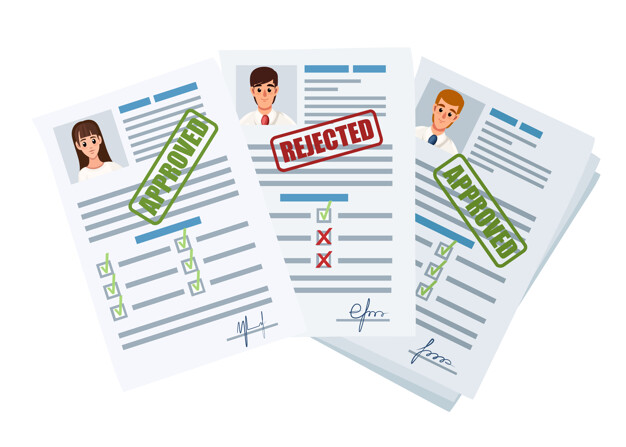
Opting to gain a loan from the bank is something more and more people opt to do. Some do it out of absolute necessity while others need a money flow boost because they want or need to invest in something or take advantage of an opportunity. In any case, having your loan request approved depends on multiple things. One of the most important ones is your employment status, that is, what your job is or if you have one in the first place. If you are looking to apply for a loan but your employment status at the moment is not clear, this article should help you through it. If you wish to learn more in the meantime and educate yourself further on smaller loans, make sure to check out Little-Loans.
How Much You Can Borrow

Depending on the type and volume of your business and work, there is a limit to how much you can take from the bank as a loan. The most important thing here is your total income, then come then savings, existing debts, expenses, and current investments. Once everything has been evaluated you will be presented with the amount you can have as a loan.
The lender (bank) needs to determine whether or not you will be able to pay the monthly dues with the budget you have without compromising your livelihood and wellbeing, especially if you are applying for a loan while on benefits.
Once they know that the monthly payment you are opting to get will not have a bad effect on your general finances, you have the green light and your application will be taken in. Mind that apart from the aforementioned factors, your lifestyle, habits, and interests will also be evaluated so that they can see how much and when you are spending, and on what. If you are a gambler, you will have even more questions to answer. Your style of life and the way you spend money can put the whole deal at risk and the bank would then have to chase you to meet the deadlines on payments. The last thing they want is for you to struggle with the loan.
The ratio between how much you loan and how much your property is worth is another thing to consider. If the credit is all about your salary and a portion of it goes towards paying off the loan, it will be the only thing they look at. If it is about mortgage, however, they will also evaluate the property.
Different Types of Employment
As you know, there are many ways in which a person can be employed. Therefore, there are also multiple scenarios when it comes to the bank’s assessment of your total income. Following is the list with more details on different types of employment.
1. Contract Work

Contract work comes in four different types, subcontracts, PAYG contracts, company contracts, and freelance. Subcontractors work for long stretches and then have a lot of time off. These are usually construction jobs, as well as more dangerous things like oil rigs and mining. These are commission jobs most of the time.
Pay-as-you-go (PAYG) means that the workers have fixed terms with agencies who take care of the taxes. These jobs enjoy the same benefits and payments as normal employees.
Workers under company contracts are not really employees but workers with their own registered businesses. They have subcontracted with agencies and companies.
Lastly, freelancers are (usually young) people who work on an output basis. They complete a project, usually in the tech, IT, and education sector on the web, and move on to the next one.
Banks usually evaluate all of the aforementioned contract workers as high risk because of the general instability of the nature of their work. If you fall in one of these categories, you will need to show them proof of your income as well as something that acts like future employment stability. Basically, it will be harder for you to walk out with a loan if you are a contract worker.
2. Self-Employment

The biggest requirement you have to fulfill is to be in the same position for at least two years before applying for a loan. The lender uses your previous tax returns to evaluate whether or not you are a suitable candidate for their loan. In case you have had rough patches over the previous few years, they will surely ask you about it as it shows some degree of instability.
What is more, not every branch of industry is equal in the eyes of the lenders. The type of business you are in has a significant effect on the amount of the loan you can have, or if you can have it. Ask around to learn what amount of risk your line of work is and what chances you have. Not all lenders view different lines of work the same, so make sure you pick the best option on the market for your case to maximize your potential.
3. Part-Time

Loans usually cover the period of many years, often multiple decades. This means that part-time workers will hardly have what it takes in terms of job security and financial circumstances to support monthly payments, at least in the eyes of the bank. None of them really favor part-time employees because they carry extremely high risk. This will forever be the case and hardly anyone working part-time can enjoys the same benefits as full-time workers do.
You could improve your chances by working more hours since the bank will see that your income is higher than average. They may even allow a larger loan. Furthermore, you should definitely be at the job for more than a year and give them the latest and most updated tax returns for evaluation. It is not impossible, but it is definitely challenging and hard to get a loan with a part-time job.
4. No Employment

It is more than clear that you do not qualify for most loans if you are unemployed. The bank will not want to take you under their wing and lend you money if it is more than clear that you have no basis on which to return a small portion of it each month.












